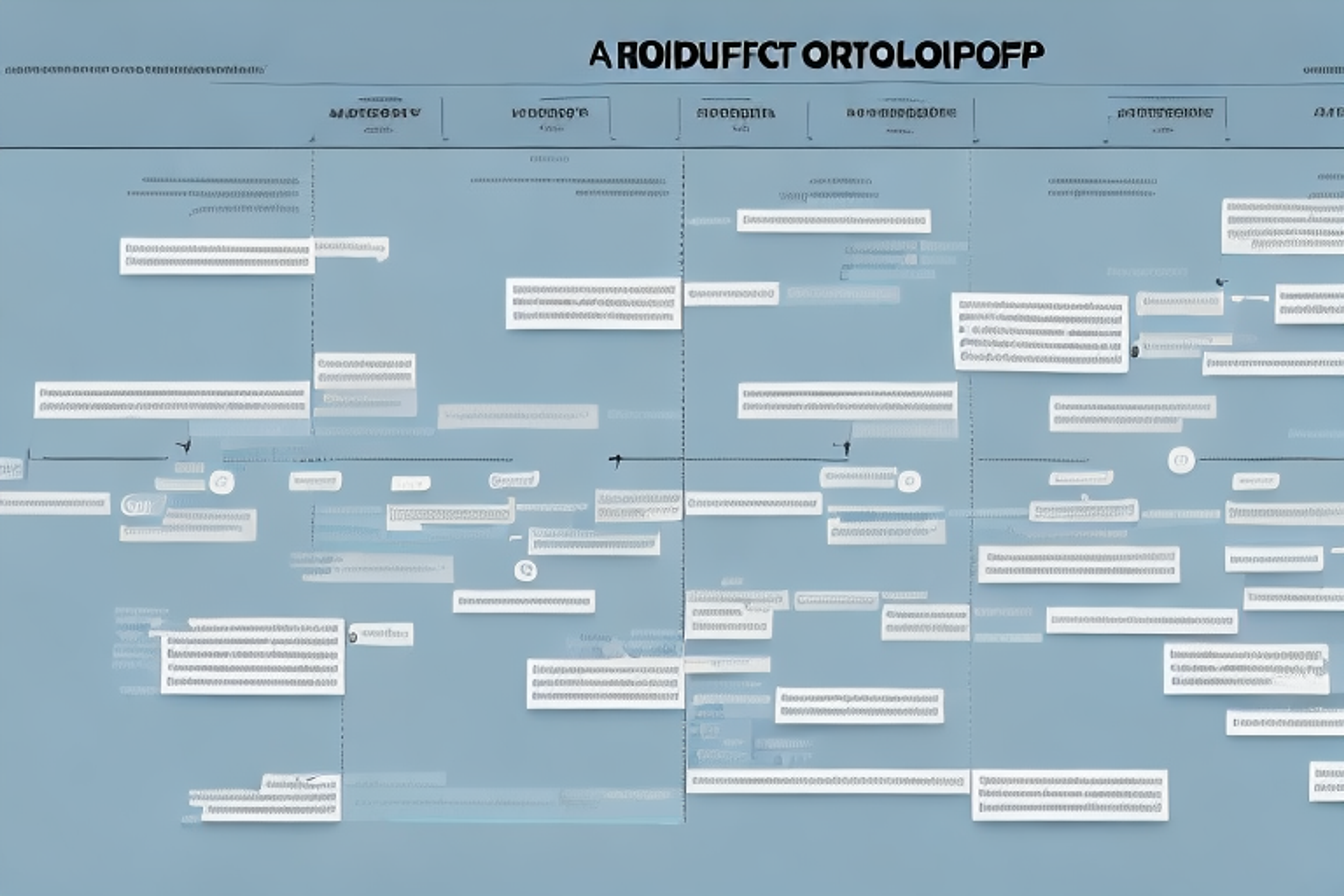Meet the Father of Product Management: Insights and Lessons from the Legend
Discover the story of the father of product management and gain valuable insights and lessons from his legendary career.
Posted May 15, 2023

Table of Contents
Product management is a crucial component of modern business. It involves the strategic planning and execution of product development, from ideation to launch. At the forefront of this field is a visionary leader who is widely regarded as the "Father of Product Management" - Dr. Donald G. Reinertsen. In this article, we will delve into the life and work of this legendary figure, explore the evolution of product management, and learn valuable lessons for success in this field.
The Early Years: How the Father of Product Management Got His Start
Donald Reinertsen's journey into product management began in the aerospace industry, where he worked on the development of missiles and satellite systems. It was there that he first realized the importance of managing complex, high-stakes projects. He later applied these principles to the development of commercial products, working for companies such as Hewlett-Packard, Intel, and Sequent Computer Systems. Through his work, Reinertsen became a pioneer in the field of product management, developing new frameworks and methodologies that are still used today.
Reinertsen's contributions to the field of product management extend beyond his work in the tech industry. He has also written several influential books on the subject, including "The Principles of Product Development Flow" and "Managing the Design Factory." These books have become essential reading for anyone interested in product management, and have helped to shape the way that companies approach product development.
In addition to his work in product management, Reinertsen is also a passionate advocate for lean manufacturing and continuous improvement. He has spoken at numerous conferences and events on these topics, and has helped to spread the principles of lean manufacturing to companies around the world. Through his work, Reinertsen has helped to transform the way that companies approach product development, and has left a lasting impact on the field of product management.
A Visionary Mind: Discovering the Importance of Product Management
Reinertsen's experience in the aerospace industry taught him the importance of managing complexity. He realized that product development was not just about creating a good product but also about managing all the different factors that can impact its success. This included everything from market trends and competitive intelligence to manufacturing processes and supply chain management. Reinertsen understood that product management was essential to ensuring a product's success, and he set out to develop new methodologies and frameworks that would help businesses navigate these challenges.
One of the key insights that Reinertsen brought to the field of product management was the idea of "flow." He recognized that in order to create successful products, businesses needed to focus on creating a smooth, efficient flow of work from ideation to delivery. This meant breaking down silos between different departments and teams, and creating a culture of collaboration and continuous improvement.
Another important contribution that Reinertsen made to the field of product management was the concept of "economic decision-making." He argued that businesses needed to take a more rigorous, data-driven approach to making decisions about product development. This meant analyzing the costs and benefits of different options, and making choices based on a clear understanding of the trade-offs involved. By doing so, businesses could avoid wasting resources on products that were unlikely to succeed, and focus their efforts on those with the greatest potential for success.
The Evolution of Product Management: A Look at Its Origins and Development
Product management has come a long way since its inception. In the early days, it was primarily focused on technical development and engineering. However, as the software industry grew, so did the need for a more comprehensive approach to product development. This led to the development of Agile and Lean methodologies, which emphasized cross-functional collaboration and iterative development. Reinertsen was instrumental in the development of these frameworks, and his contributions continue to shape the way products are developed today.
Today, product management has become a critical function in many organizations, with product managers playing a key role in driving innovation and growth. They are responsible for identifying customer needs, defining product requirements, and working closely with cross-functional teams to bring products to market. In addition, product managers are increasingly using data and analytics to inform their decisions, and are leveraging emerging technologies such as artificial intelligence and machine learning to create more personalized and engaging products. As the business landscape continues to evolve, product management will undoubtedly continue to play a vital role in shaping the future of innovation and technology.
The Impact of the Father of Product Management on Modern Business Practices
Reinertsen's impact on product management cannot be overstated. His work has revolutionized the way businesses develop products, and his frameworks and methodologies are widely used today. His focus on managing complexity, cross-functional collaboration, and continuous improvement has led to more streamlined product development processes and better products overall.
One of Reinertsen's key contributions to product management is his emphasis on the importance of feedback loops. He believes that product development should be an iterative process, with regular feedback from customers and stakeholders informing each iteration. This approach has led to products that better meet the needs of their users, and has helped businesses to stay ahead of the competition.
Another area where Reinertsen has had a significant impact is in the use of data to inform product development decisions. He has advocated for the use of metrics and analytics to measure the success of products, and to guide decision-making throughout the development process. This data-driven approach has helped businesses to make more informed decisions, and has led to products that are more likely to succeed in the market.
Lessons from the Legend: Key Principles for Successful Product Management
There are several key principles that are essential to successful product management. First, it is crucial to have a deep understanding of your target market and their needs. Second, cross-functional collaboration is essential to ensuring that all aspects of product development are aligned and working towards the same goal. Third, continuous improvement and iteration are critical to responding to changing market conditions and customer needs. Reinertsen's work emphasizes all of these principles, and they remain as relevant today as they were when he first developed them.
From Idea to Launch: The Role of Product Managers in Driving Innovation
Product managers play a critical role in driving innovation and bringing products to market. They are responsible for understanding customer needs, analyzing market trends, managing development teams, and ensuring that products meet their business objectives. Through cross-functional collaboration and a comprehensive understanding of the market, product managers can drive the innovation necessary to create successful, market-leading products.
Managing Stakeholders: Building Strong Relationships with Customers, Teams, and Executives
Stakeholder management is a critical component of product management. Product managers must communicate effectively with customers, development teams, and executives to ensure that everyone is aligned and working towards the same goal. By building strong relationships and maintaining open lines of communication, product managers can ensure that everyone is on the same page and that the product is set up for success.
Navigating the Competitive Landscape: Tips for Succeeding in Today's Market
The modern business landscape is more competitive than ever before. In order to succeed, product managers must have a deep understanding of their competitors, their products, and their market position. They must be able to identify threats and opportunities in the market and make strategic decisions that set their product apart from the competition.
Embracing Change: How to Adapt to Emerging Trends and Technologies in Product Management
The world of product management is constantly evolving, with new trends and technologies emerging all the time. Product managers must be adept at adapting to these changes and incorporating them into their product development processes. This requires a willingness to experiment and take risks, as well as a deep understanding of the market and customer needs.
Best Practices for Effective Product Management: Insights from Industry Experts
There is no one-size-fits-all approach to product management. However, there are several best practices that can help ensure success. These include having a robust understanding of customer needs, maintaining strong stakeholder relationships, and adopting an iterative, responsive development process. By incorporating these best practices into their product development processes, product managers can minimize risk and maximize success.
Balancing Priorities: Strategies for Managing Multiple Products at Once
Managing multiple products at once can be challenging, with competing priorities and limited resources. Product managers must be able to prioritize effectively, focusing on the products that are most critical to their business objectives. They must also be adept at balancing short-term and long-term goals, ensuring that the development of one product does not detract from another.
Measuring Success: Key Metrics and KPIs for Evaluating Product Performance
Measuring success is essential to ensuring that products meet their business objectives. Product managers must be able to identify the key metrics and KPIs that are relevant to their product and track them throughout the development process. By doing so, they can make data-driven decisions that optimize performance and maximize success.
The Future of Product Management: Predictions and Trends to Watch Out For
The world of product management is evolving rapidly, with new trends and technologies emerging all the time. Some of the most exciting trends to watch out for include the use of AI and machine learning to optimize product development processes, a greater emphasis on customer engagement and co-creation, and the rise of new platforms and technologies such as blockchain. By staying on top of these trends, product managers can position themselves for success in the years to come.
Donald G. Reinertsen is a true legend in the field of product management, and his contributions have had a profound impact on modern business practices. By understanding his principles and frameworks and adopting best practices for effective product management, businesses can position themselves for success in today's competitive landscape.



















